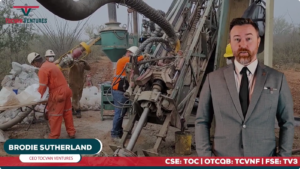By James Regan
SYDNEY, July 11 (Reuters) – After 25 years working around the world as a highly paid geologist earning a six-digit salary, Phil Scheimer is back in Australia weighing up his future prospects: day labourer or pizza delivery man.
The collapse of the global mining boom is decimating the ranks of working geologists. With little chance of employment, many are being forced into unwanted career changes to pay the bills.
"I just want the phone to ring and for someone to say we've got work for you, any work," says Scheimer from his home in Perth, a city in western Australia that rode the mining boom over the past decade but is now facing tens of thousands of people returning from mining camps jobless.
While scores of truck drivers, equipment operators, mechanics and other mining staff have also seen their numbers pared, geologists are among the hardest hit as companies abandon exploration and concentrate on working existing mines.
"Times are dire," said Perth-based geology consultant Wendy Corbett. "I have been in the exploration industry for 41 years and this is the worst I have ever seen it."
A second unemployed geologist, who has explored for nickel in Australia and Africa, said he had recently completed a three-day barista's course and hoped for a steady paycheck after interviewing with a Sydney coffee house. He declined to be identified.
At the height of the mining boom, which largely insulated commodities-driven economies like Australia's from the global financial crisis, miners such as BHP Billiton (NYSE: BBL – news) , Rio Tinto RIO.L> and Anglo American (LSE: AAL.L – news) , paid handsomely for geologists like Scheimer to find more iron ore, coal and copper to sell to fast-industrialising China.
Senior geologists working in Australia's outback could typically command salaries upwards of A$200,000 ($188,000) a year, while newcomers with as little as one year's experience earned roughly half that.
But a cooling of China's economic growth turned the boom to bust and put the brakes on heady expansion plans once envisioned by the miners, eliminating the need for teams of geologists.
"For the industry, it's no longer about finding new mines as much as working with what you've got, digging what you know already exists with as few workers as possible," said Gavin Wendt, an analyst with consultancy MineLife in Sydney.
While not specifically targeting geologists, BHP recently axed 100 jobs at the Perth headquarters of its iron-ore division, its most profitable business. A further 170 jobs are earmarked to go from its Whaleback mine in the Pilbara desert, a remote region of Western Australia that accounts for two in every five tonnes of seaborne-traded iron ore.
"Our aspiration is to at least hold our headcount the same or reduce it while we are increasing our volumes," BHP's iron ore division head Jimmy Wilson said this month.
Little scope exists for geologists trained in unearthing metals to switch to oil-and-gas, where employment opportunities are greater. But, say experts, that could change as a global hunt to find more shale – essentially oil-and-gas bearing rocks – grows.
RISING JOBLESS
An Australian government tally shows companies spent nearly 40 percent less on exploring in Australia in the first quarter of 2014 than a year earlier – a bad sign for geologists looking for work.
The Australian Institute of Geoscientists (AIG) says 20 percent of 1,069 geologists it surveyed lost their jobs in the last three months.
"The mining boom is gone and the downturn is now in full swing. Our members are increasingly jobless as a result," said institute president, Wayne Spilsbury.
Rio Tinto (Xetra: 855018 – news) 's global head of exploration, Stephen McIntosh, says the global miner has no plans to increase its exploration budget from 2014's pared down levels.
For geologists, says McIntosh, "It's tough out there at the moment… It's sort of hang on if you can."
Worldwide, the mining industry last year cut exploration budgets for nonferrous minerals by 29 percent in response to lower metals prices and an uncertain outlook, according to sector research group SNL Metals & Mining.
"I've been offered part-time work laying concrete and if it comes through I'll take it," says Scheimer, who returned to Australia after being let go by Barrick Gold Corp while looking for copper in Zambia.
"But I'm not beyond going to the nearest Pizza Hut for a delivery job if I have to." ($1=1.06 Australian dollars) (Editing by Richard Pullin)
























